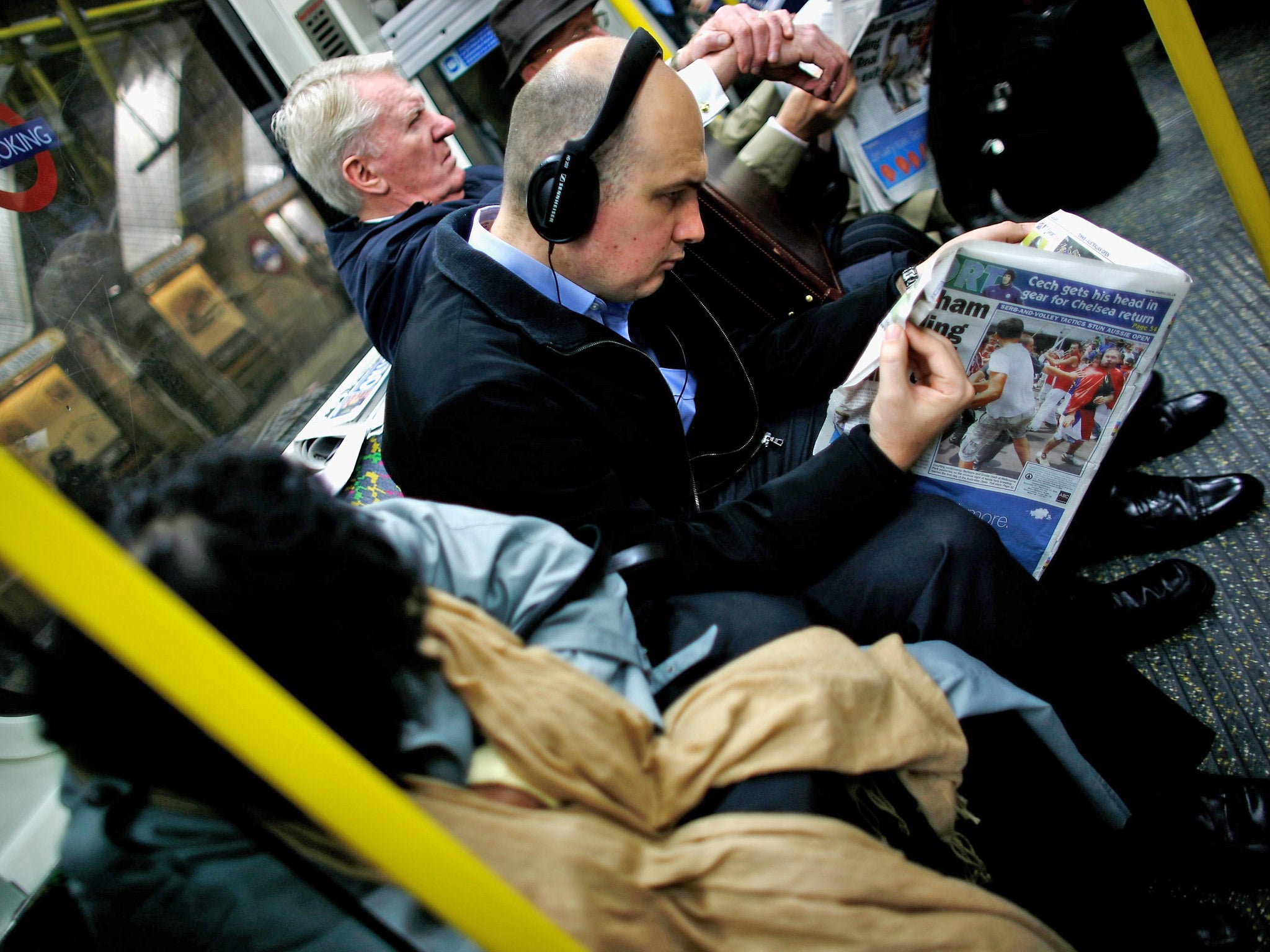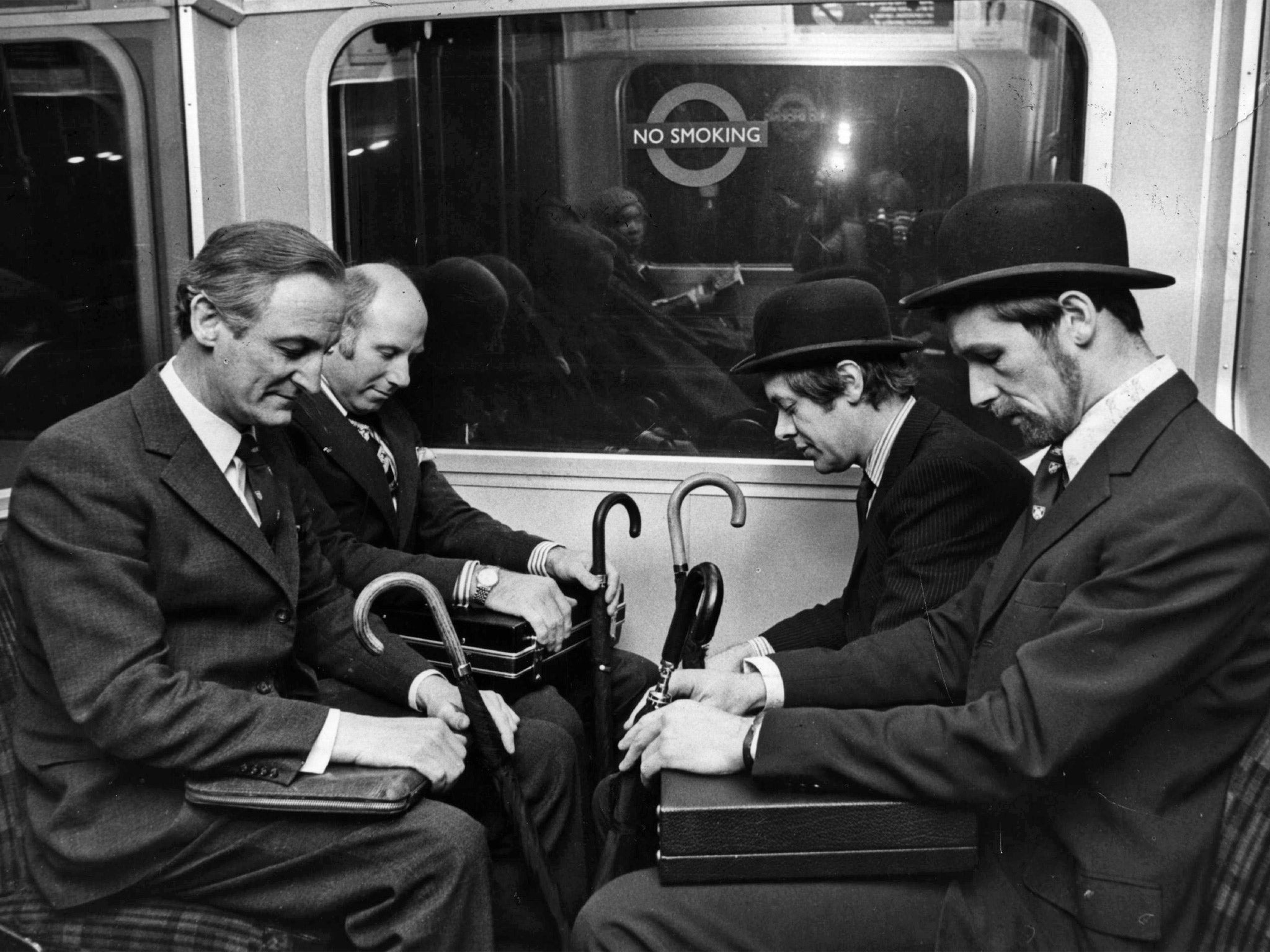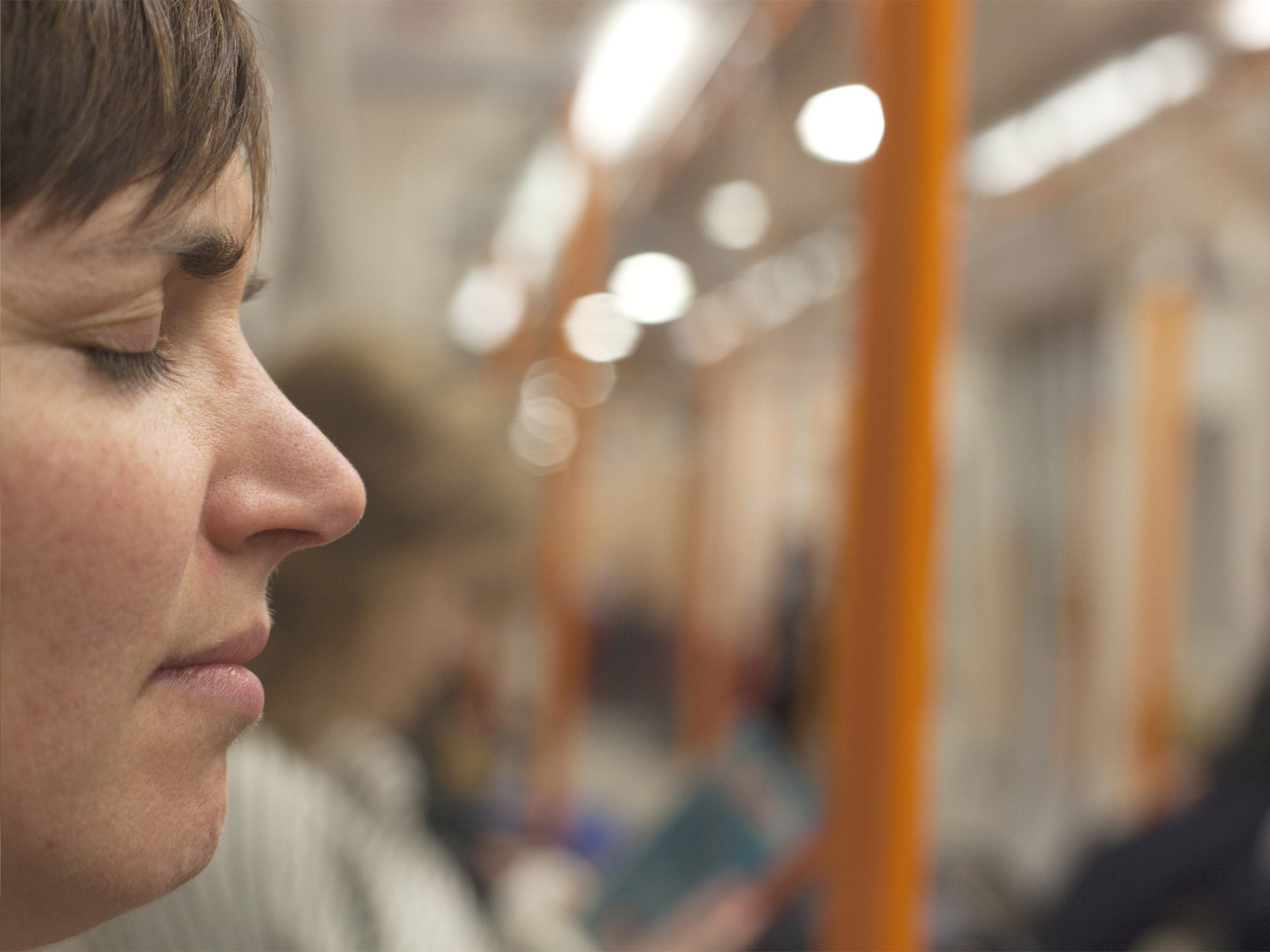Has the world become too noisy?
Quiet carriages on trains are being phased out, as mobile communications blur the lines of public and private space. Julian Baggini mourns them – but finds that he is all but alone in clinging to a more peaceful world

Your support helps us to tell the story
From reproductive rights to climate change to Big Tech, The Independent is on the ground when the story is developing. Whether it's investigating the financials of Elon Musk's pro-Trump PAC or producing our latest documentary, 'The A Word', which shines a light on the American women fighting for reproductive rights, we know how important it is to parse out the facts from the messaging.
At such a critical moment in US history, we need reporters on the ground. Your donation allows us to keep sending journalists to speak to both sides of the story.
The Independent is trusted by Americans across the entire political spectrum. And unlike many other quality news outlets, we choose not to lock Americans out of our reporting and analysis with paywalls. We believe quality journalism should be available to everyone, paid for by those who can afford it.
Your support makes all the difference.What could make an educated twenty-something rage at a group of older men, calling one an "officious bastard" and telling the rest to "grow up"? If you're a regular train passenger, you might well have guessed, because similar scenes have been played out across the country when people have been politely reminded by fellow passengers that "this is the quiet carriage".
I fear, however, that the angry young man speaks for the majority, albeit in an atypically rude manner. Revealingly, he said that he could tell those of us who backed his would-be silencer were Tories from the Conservative towns served by the Abellio Greater Anglia train from London Liverpool Street to Norwich. He was wrong, but his inference reflects how the idea that we should respect the quiet of others in public spaces looks anachronistic to many. "It's the 21st century," he yelled, "people talk on mobiles on trains."
Quiet carriages represent one of the few attempts to resist this, but they are now under threat. CrossCountry has removed them from all its long-distance routes, while First Great Western has done away with them in first class (not completely, as has been reported).
All of the initial media reaction to this has been negative, with the Mail proclaiming a victory for "yobs" and "mobile phone louts". But despite the howls of protest, in this case the silent majority sides with the noise makers. I'm sorry to say it, but most are with the angry young man, not the quiet old traveller.
This issue is about much more than just noise levels in trains. It is part of a wider debate about what is demanded of us in shared social space, one in which it is not obvious who is on the side of virtue. Social norms around behaviour in public have changed, especially regarding noise. The portable personal stereo created the mindset of portable personal space. People increasingly move around in bubbles, behaving as though in their own living rooms, oblivious to others. You see this in the amount of eating and talking in theatres and cinemas, as well as in the way people cut themselves off from the ambient soundscape with headphones, not caring about the noise that escapes, since it is assumed others will be doing the same.
Social norms differ across space as well as time. Travel on trains around the world and some are havens of tranquillity, others a cacophony of voices. Even within the UK, I find that any train coming in and out of Glasgow, for instance, is much more audibly ebullient than my more usual Bristol to London route. Indeed, the kind of reserved, stand-offish quiet traditionally found on trains is probably peculiarly English. It was satirised beautifully in a 1959 episode of Hancock's Half Hour, where the anti-hero's inability to shut up alienates the whole compartment. "There's no more dismal sight in the world than a train load of Englishmen hurtling through the rain," says Hancock. "Eight hundred miserable people hating the sight of each other and who can't get off."
But England is changing and, canvassing opinion on Twitter, I found more loathed than loved quiet carriages. Marcus Wood, 19, surely speaks for his generation when he says he "never understood people who nitpick about things such as headphone leakage", while "Sceptic Paul" complained: "They seem to bring out the worst in people who seek to be annoyed/superior." Even the thumbs-up from Radio 4 presenter Tom Sutcliffe was somewhat double-edged: "One of the few remaining ecosystems for old-fashioned, pursed-lip English disapproval," he said. "Love them." The demise of quiet carriages is not being led by yobs but by a lack of demand from a public that increasingly accepts chaotic ambient noise as normal and acceptable. Dave Watkin, commercial director of CrossCountry, says research found that hardly anyone prefers quiet carriages. "For the vast majority, travelling is a sociable experience," he said, and most "neither knew nor cared about the quiet coach".
Indeed, Watkin was astonished that most people who requested a seat in the quiet carriage when booking online were unaware that they had done so. "I think they were just ticking boxes," he says, baffled. Similarly, most were oblivious that they were sitting in a quiet carriage. Although research suggests that "older travellers would prefer a quieter environment", for the majority "noise just wasn't a problem".

With the majority of its often close-to-full long-distance trains having only four or five carriages, one of which is first class, and demand for seats in the quiet zone so low, many passengers who don't want to sit in them find they have to. This creates tension, as their normally acceptable noise levels are challenged by those seeking something stiller.
As a nitpicking, annoyed/superior, officious bastard myself, I find this all very dispiriting. I had assumed that more people found the tinny beats from headphones and Samsung's ubiquitous whistling message alert infuriating. I should have known better when my "Peace and Quiet on Trains" Facebook page got fewer than 100 "likes". I started the page because I got fed up with the conflicts created by the quiet carriage. "People have very different interpretations of what quiet means," says Watkin. "One person's might be absolute silence, for another low-level conversation is OK." Many appear to assume that the rule concerns only mobile phones, hence the absurdity of an elderly couple talking loudly for an entire journey, but tut-tutting when someone else spoke more quietly on a phone. My solution is silent carriages, or for the romantic, "Library Cars". No noise at all except when necessary. No ambiguity, no room for irritable disagreement.
However, it could be that this simply exacerbates the deeper problem with sharing civic space. What has been lost is a sense of responsibility towards others, which has been replaced by the prioritising of our own rights. According to this way of thinking, if I want to make a call, watch a film, listen to music or eat the world's crunchiest crisps with my mouth open, then I need a very good reason not to. You being a bit annoyed by me is not reason enough.
Quiet carriages can actually reinforce this. They play to the mindset that says that in the absence of a specific rule, you can behave as you like. Keeping your noise levels to a minimum is not a routine obligation of civility but an optional extra, enforced only in areas where the awkward and fussy gather to moan.
This reflects a wider cultural shift that encompasses more than just noise. Our own rights and freedoms come first, and it takes something special to trump them. Indeed, I am aware that my own indignation could be the flipside of this exact same dynamic. Is it not the case that I have the expectation that I can carry around the quiet of my own home with me, and I have simply become intolerant of the inevitable noise of public space? There can be selfishness in demanding others are silent, as well as in making noise ourselves.
So I can see the logic in CrossCountry's strategy to remove quiet carriages and try "the gentle encouragement of everyone to be conscious of their surroundings", as Watkin puts it. But is this idealistic? For example, he says that train staff would back up those who ask fellow passengers to turn down their personal stereos. I'm a little sceptical, since I've found train staff very reluctant to intervene, even in quiet carriages. One First Great Western train manager told me bluntly he wouldn't enforce the rules, saying that "the problem is, some people are very anal about it". In CrossCountry's consultation, the desire from staff to abolish quiet carriages was "absolutely overwhelming", and has been for a couple of years, mainly because they hated getting involved in disagreements.
The general approach, however, seems right to me. Somehow, we have to find a way of rehabilitating the idea that there is such a thing as public space, which is more than simply the areas outside our homes. Mobile technology helped create the problem, and to some it might seem it can help solve it. As Watkin points out, quiet carriages were introduced in response to people screaming into mobile phones the size of bricks. Now, you don't need to shout to be heard. Similarly, better headphones should result in less noise leakage.

The kind of quiet that this might lead to, however, is not civil placidness, but the pod-like multiplicity of mobile private spaces, rows of individuals plugged into their own little worlds, passengers travelling apart together.
Yet to protest about this atomisation of life seems quaintly Canute-like. The world is not going to unplug itself when so much can be accessed on the move. The best we can hope for is that people come to appreciate that shutting yourself off from the world does not necessarily mean cutting the world off from you. Just because nothing is impinging on your space doesn't mean nothing is going out from it.
It should not be surprising that this renegotiation of public space is proving a little fraught. Until very recently, private and shared domains were clearly demarcated. It takes some effort to adapt to a situation where, in a typical day, we are flipping between public and private spaces without physically moving. Consideration costs nothing, complain the traditionalists, but what it means to be considerate is no longer self-evident.
Because I'm pessimistic that we're going to make these adjustments any time soon, I'm keen to promote silent carriages as refuges. But in the long run, CrossCountry is right. We cannot always divide the social world into quiet and noisy zones. In the public square, the noisy and the silent need to coexist with the gentle hum of people going about their leisure or business, not noiselessly, but thoughtfully. More important than saving the quiet carriage is killing the selfishness that creates the need for it.
Join our commenting forum
Join thought-provoking conversations, follow other Independent readers and see their replies
Comments